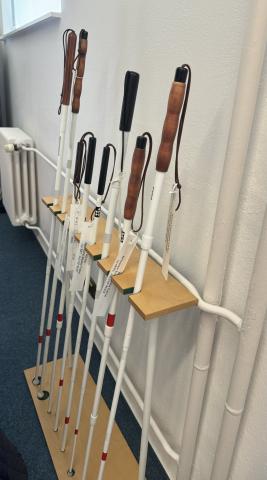
(The photo gallery is available here.)
A search for Berén quickly reveals that the medieval Hungarian name is the same as Brno in southern Moravia, the second largest city in the Czech Republic, which was home to a largely German-speaking population until the end of World War II., when it was called Brünn. The centre has much to offer visitors. The Tugendhat Villa, an UNESCO World Heritage Site, is a 13th-century Špilberk castle, famous as the 'prison of nations', with its mythical casemates (Kazinczy was imprisoned here with his fellow Hungarian Jacobins, but Polish revolutionaries, Italian patriots and Hungarian freedom fighters also languished in the dark, dank cells. Although there is no evidence to prove it, it is said that during World War II. the Nazis also built gas chambers on the lowest level.)
At the foot of the park surrounding the castle is Masaryk University, founded in 1919 and named after the first President of the Czechoslovak Republic. In addition to the imposing central building, the university owns 180 others and operates the Mendel research station in Antarctica.
But that's not the only reason to visit their website. Without exaggeration, the second largest higher education institution in the Czech Republic is a European leader in supporting students and staff with disabilities. This is done by the Teiresiás Support Centre, established in 2020, with 45 permanent and 100 external staff. Petr Peňáz, who took up the initiative as a teacher of Classical Philology, is still actively involved in this dedicated work.
For almost 10 years now, the MUST Week conference has been held every year with Erasmus+ funding. It is mainly attended by people from European universities who are interested in learning more about the workings of the Support Centre and making valuable contacts.
This year I had the good fortune to be a member of the Support Service of PTE and to be able to attend this very busy and well-organised meeting, which lasted a few days. I have to admit that I was amazed at the technical equipment, the accessibility thought through to the last detail, which is based on a constantly evolving, deep professional knowledge. It is true that all this would have been a dry exterior if it had not been imbued with a sense of welcome and an ever-watchful, helpful attention.
I can say without modesty that the PTE Support Service is also rich in the latter. It is certainly, at least in this.
My visit to the Teiresiás Centre certainly highlighted one thing: living connections, professional brainstorming and unconditional openness can go a long way in driving the various Support Services forward.
In 2025, the Teiresiás Centre will celebrate its 25th birthday and MUST Week its 10th. Who knows? Perhaps the round anniversaries will lead to the establishment of an even stronger alliance than ever before. I'm confident of it.
- András Olessák -




























